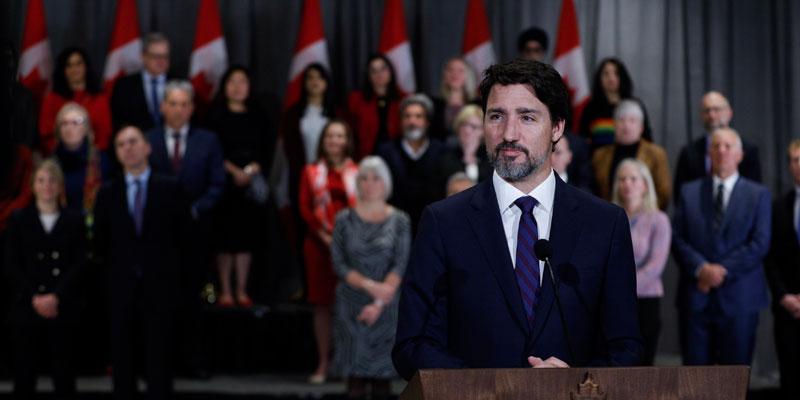Trudeau government weakened Canada’s economy well before COVID-19

As the Trudeau government prepares to table the first federal budget in roughly two years, it’s worthwhile to consider how Ottawa’s policies of higher taxes, more spending and borrowing, and more regulations weakened the economy, well before COVID-19.
In 2015, the Liberals campaigned on cutting income taxes for the middle class, particularly for families with children. After forming government, the Liberals reduced the middle-income tax rate from 22.0 to 20.5 per cent on earnings (2020) between $49,020 and $98,040. However, they simultaneously eliminated several tax credits for children’s fitness, education, textbooks, public transit and income-splitting for couples with young children—effectively increasing the amount of income taxes payable by Canadians who previously claimed such credits on their tax returns.
In fact, a 2017 analysis of these two tax changes—lowering the tax rate and eliminating tax credits—found that 81 per cent of middle-income families paid (on average) $840 in higher income taxes than before these changes were made.
A related analysis found that 61 per cent of low-income families experienced an increase in personal income taxes because they didn’t benefit from the tax rate reduction—their income was too low—but they did lose the benefit of tax credits.
Moreover, in 2016 the federal government in conjunction with nine participating provinces (excluding Quebec) agreed to increase the tax for the Canada Pension Plan starting in 2019. As a result, once the hike is fully implemented in 2025, 98.8 per cent of middle-income families will experience a tax increase.
To be clear, the proposed policy of the Liberals, namely to lower income tax rates, was a good one. There has been a consensus of consecutive governments, including both Liberal and Conservative, that Canada should lower personal income tax rates, thereby making Canada more competitive compared to other countries and improving incentives for entrepreneurship, risk-taking, investment and work effort. But again, the Trudeau government offset the benefits of the reduced tax rate by eliminating tax credits, resulting in an actual tax increase.
When faced with this fact—that it increased income taxes, particularly on the middle class—the government’s consistent refrain, including the former finance minister, was that the analysis ignored government transfers, specifically the increased Canada Child Benefit (CCB). In other words, the government sees no difference between people keeping more of their own earnings through lower tax rates and government transfers.
It’s worrying for any government to treat these two dramatically different sources of money the same. Cutting taxes allows individuals and families to keep more of their own hard-earned money, increasing their independence, and improving their ability to provide for themselves and their families.
Increasing the CCB can create dependency and involves reallocating income from one group to another. The CCB is particularly disconcerting because it’s financed by borrowing, meaning the families with children receiving higher CCB today do so at the expense of their own children who will bear the future burden of today’s borrowing for the CCB.
Finally—and again, well before COVID—Canada’s economic performance was declining. Specifically, from 2016 to 2019, the rates of income growth and private-sector job creation declined compared to previous periods while growth in business investment, which is at the heart of long-term prosperity and remains crucial for any economic recovery, was actually negative.
Like previous periods of higher taxes, increased government spending and borrowing, and more regulations, the result has been a weaker—not a stronger—economy. It’s important to recognize the economic reality of these policies as the federal government, on the eve of its next budget, is poised to recommend more of the same when the Canadian economy actually requires a dramatic change in course.
Authors:
Subscribe to the Fraser Institute
Get the latest news from the Fraser Institute on the latest research studies, news and events.


